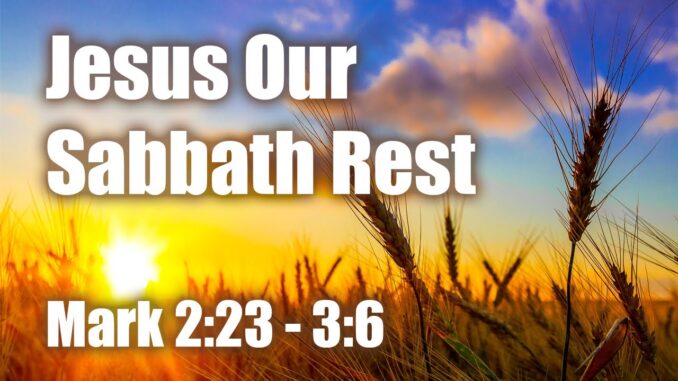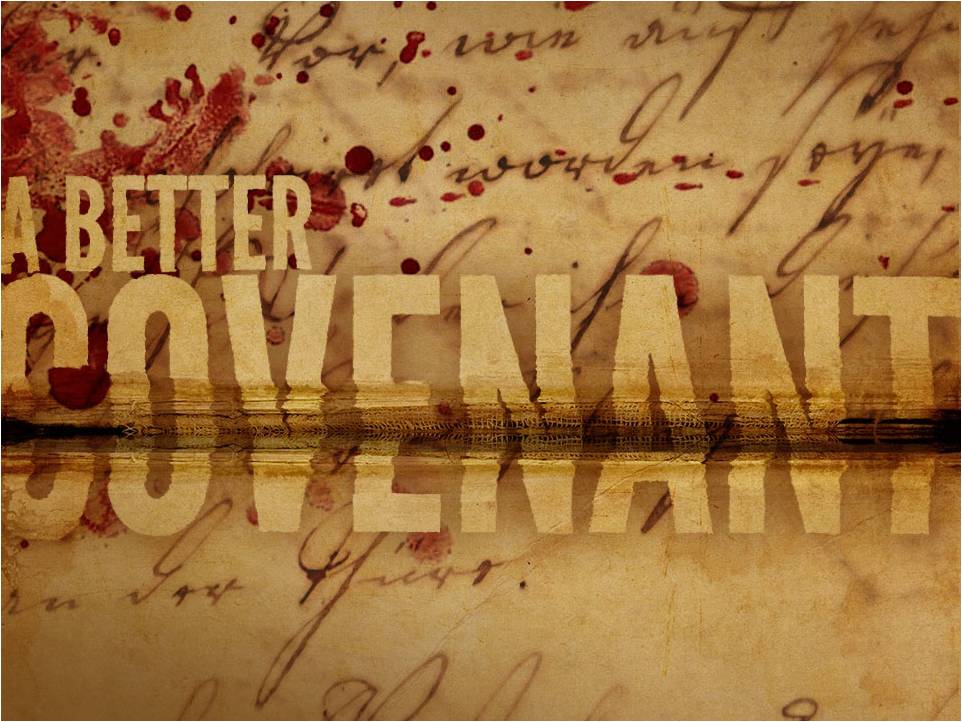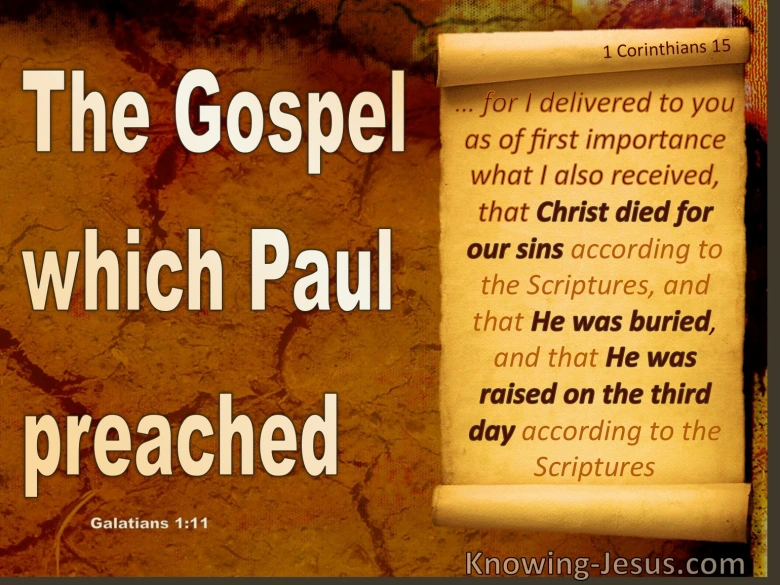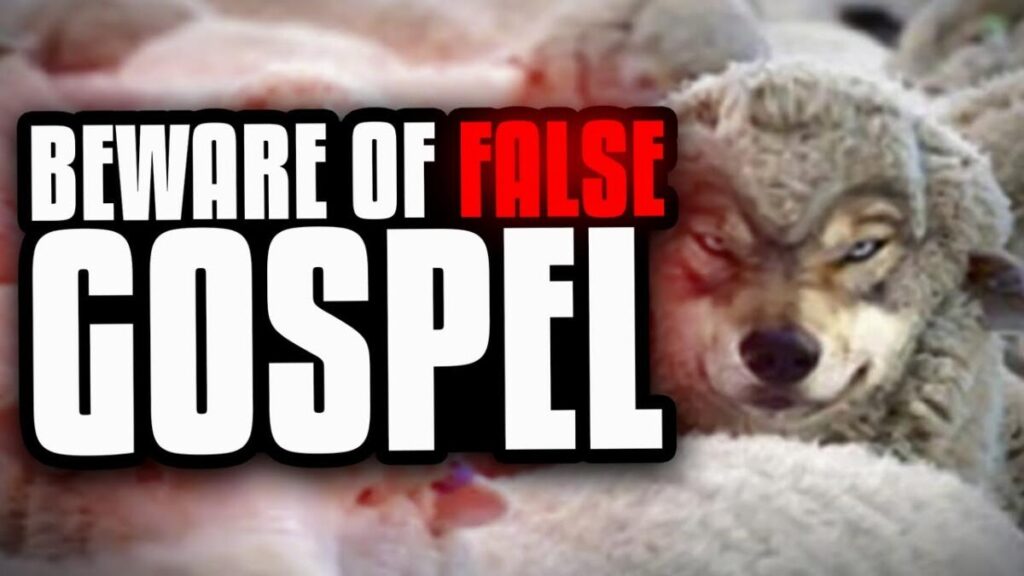
October 24, 2025
Introduction

Some Christians, including Seventh-day Adventists and other Sabbath-keepers, insist that observing Saturday as the Sabbath is a test of faith or necessary for salvation. They often argue that the Sabbath is an “everlasting law” distinct from the “sacrificial law” Christ fulfilled, or that the Ten Commandments remain binding.
These claims lack biblical support and risk preaching a false gospel, which Paul warns brings a curse and leads to eternal danger. This blog clarifies: Jesus is our Sabbath Rest, a Person, not a day. We’ll address questions raised about the Sabbath’s permanence, compare the Sabbath-keepers’ gospel with Paul’s gospel, show how Israel’s failure to keep the Mosaic Law—due to their fallen human nature, not the law’s inadequacy—prompted God’s promise to fulfil it in Christ through a better covenant built on better promises, and explain how the New Covenant replaces the Mosaic Law with the Law of Christ. If we trust in a false gospel, we are not saved and face the peril of Hell, but God promises eternal salvation to those who repent and trust in Christ’s finished work.
1. Jesus Is Our Sabbath Rest — A Person, Not the Day
The Old Covenant Sabbath (Ex 20:8–11) was a weekly shadow pointing to Jesus Christ, the true rest.
Hebrews 4:9–10 (NASB)
**“Consequently, there remains a Sabbath rest for the people of God. For the one who has entered His rest has himself also rested from his works, as God did from His.”*
- Sabbath rest = ceasing from works to earn salvation.
- Entered by faith in Christ, not by observing Saturday.
- Jesus provides rest 24/7—every moment, every day, not one day a week.
- The New Covenant Sabbath is a person, not a day
Matthew 11:28 (NASB)
**“Come to Me, all who are weary and burdened, and I will give you rest.”*
The Old Covenant Sabbath was a temporary type, like sacrifices or the temple, pointing to Christ. He is the substance (Col 2:17). Resting in Him means trusting His finished work, not a calendar day.
2. The New Covenant: Better Promises, Fulfilled in Christ

The New Covenant is a better covenant built on better promises, foreshadowed in the Old Testament, fulfilled in Christ, and distinct from the Mosaic Law, which it replaces with the Law of Christ.
Israel’s failure to keep the Mosaic Law—due to their fallen human nature, not the law’s inadequacy—prompted God’s plan to fulfil it through Christ.
Israel’s Failure Due to Fallen Human Nature
Throughout the Old Testament, Israel repeatedly failed to keep the Mosaic Law, not because the law was flawed, but because their fallen human nature was weak.
- Golden Calf: Shortly after receiving the Ten Commandments, Israel worshipped an idol (Ex 32:1–6).
- Rebellion in the Wilderness: They grumbled and disobeyed God’s commands (Num 14:1–4).
- Idolatry in the Promised Land: Israel turned to false gods despite God’s warnings (Judg 2:11–13; 1 Kings 11:5–8).
- Prophetic Rebuke: Isaiah 1:11–13 (NASB)
**“‘What are your many sacrifices to Me?’ says the Lord… I take no pleasure in the blood of bulls… Cease to do evil.’”*
The law was holy and good (Rom 7:12), but Israel’s sinful nature made obedience impossible.
Romans 8:3 (NASB)
**“For what the Law could not do, weak as it was through the flesh, God did: sending His own Son…”*
God’s Plan to Fulfill the Law in Christ
God was fully aware that Israel’s fallen nature would lead to failure, so He planned from the beginning to fulfill the law’s types and shadows in Christ and establish a better covenant.
- Foreshadowed in the Old Testament: Jeremiah 31:31–33 (NASB)
**“‘Behold, days are coming,’ declares the Lord, ‘when I will make a new covenant with the house of Israel and the house of Judah, not like the covenant which I made with their fathers… which they broke… I will put My law within them and write it on their hearts…’”*- Not like the Mosaic Covenant: The Old Covenant, with its external laws (e.g., Ten Commandments), was broken due to human weakness.
- Internal Transformation: The New Covenant promises God’s law written on hearts through the Holy Spirit.
- Fulfilled in Christ: Jesus inaugurated the New Covenant through His death and resurrection, fulfilling the law’s types and shadows (e.g., sacrifices, Sabbath, priesthood). Luke 22:20 (NASB)
**“And in the same way He took the cup after they had eaten, saying, ‘This cup, which is poured out for you, is the new covenant in My blood.’”* Matthew 5:17 (NASB)
**“Do not presume that I came to abolish the Law or the Prophets; I did not come to abolish, but to fulfil.”* - Better Covenant, Better Promises: Hebrews 8:6–8 (NASB)
**“But now He has obtained a more excellent ministry, to the extent that He is also the mediator of a better covenant, which has been enacted on better promises. For if that first covenant had been faultless, there would have been no occasion sought for a second.”*- Better Promises: Forgiveness of sins, direct access to God, and the indwelling Spirit—not external rules.
- Obsolete Covenant: Hebrews 8:13 (NASB)
**“When He said, ‘A new covenant,’ He has made the first obsolete. But whatever is becoming obsolete and growing old is about to disappear.”*
Distinct from the Mosaic Law
The Mosaic Law, including the Ten Commandments, was a temporary covenant for Israel, pointing to Christ.
Galatians 3:24–25 (NASB)
**“Therefore, the Law has become our guardian to lead us to Christ, so that we may be justified by faith. But now that faith has come, we are no longer under a guardian.”*
The New Covenant is not like the Mosaic Law because it:
- Relies on Christ’s finished work, not human obedience.
- Empowers believers through the Holy Spirit, not external commands.
- Centers on the Law of Christ, not the Ten Commandments.
Replaced with the Law of Christ
The Law of Christ replaces the Mosaic Law as the guide for New Covenant believers.
Galatians 6:2 (NASB)
**“Bear one another’s burdens, and thereby fulfil the law of Christ.”*
John 13:34 (NASB)
**“I am giving you a new commandment, that you love one another; just as I have loved you, you also are to love one another.”*
- What is the Law of Christ?
- Love God fully (Deut 6:5, fulfilled in Christ).
- Love others as Christ loved (sacrificially, John 13:14).
- Spirit-empowered: Not external rules on stone, but internal transformation by the Holy Spirit (Rom 8:2–4).
- Fulfils the Law: Romans 13:10 (NASB)
**“Love is the fulfilment of the Law.”*
The Mosaic Law, including the Sabbath, was a shadow fulfilled in Christ. The Law of Christ is the eternal reality, guiding believers to live out love, not legalism.
3. Answering Questions Raised
Question: Are the Ten Commandments an “Everlasting Law” Separate from the Sacrificial Law?
Some argue Christ fulfilled only the “sacrificial law,” not the “everlasting” Ten Commandments. This is unbiblical.
- No Division in Scripture: The Ten Commandments were the core of the Old Covenant (Ex 34:28; Deut 4:13), and sacrifices were added later (Gal 3:19). Both were shadows fulfilled in Christ. Colossians 2:16–17 (NASB)
**“Therefore, no one is to act as your judge… in respect to a Sabbath day—things which are only a shadow… but the substance belongs to Christ.”*
The Sabbath is listed with ceremonial laws—no separation. - Christ Fulfilled All: Romans 10:4 (NASB)
**“For Christ is the fulfilment of the Law for righteousness to everyone who believes.”*
Jesus fulfilled the whole law—moral, ceremonial, civil—not just sacrifices.
Question: Are the Ten Commandments “Carved in God’s Seat of Stone in Heaven”?
Some claim the Ten Commandments exist as a heavenly, eternal law. No verse supports this.
- Tablets were carved on Sinai (Ex 31:18), stored in the earthly ark (Deut 10:5), and the ark is gone (Jer 3:16)—no heavenly copy mentioned. Hebrews 8:13 (NASB)
**“When He said, ‘A new covenant,’ He has made the first obsolete…”*
The entire Old Covenant, including the Ten Commandments, is abolished.
Question: Does a Future “Sacrifice with Fire from Heaven” Reinstate the Law?
Some suggest a future “sacrifice with fire from heaven” will prove the Sabbath’s importance. This is speculative and unbiblical.
- No New Testament verse mentions a future sacrifice reinstating the law. Revelation 13:13 (false prophet’s signs) is deceptive, not divine. Old Testament fire events (e.g., 1 Kings 18) were shadows of Christ. Hebrews 10:12 (NASB)
**“But He, having offered one sacrifice for sins for all time, sat down at the right hand of God.”*
Christ’s sacrifice is final—no future sacrifice needed.
Question: Does Rejecting the Sabbath Equal Rejecting God’s Word?
Some argue that rejecting Sabbath-keeping is “throwing away” God’s Word. False. This view honors all Scripture by seeing it fulfilled in Christ.
- The Old Testament points to Christ (Col 2:17).
- The New Testament reveals His fulfilment (Rom 10:4).
- Reading the Old Covenant without Christ veils the truth. 2 Corinthians 3:14–16 (NASB)
**“…until this very day at the reading of the old covenant the same veil remains… but whenever someone turns to the Lord, the veil is taken away.”*
4. The Sabbath-Keepers’ Gospel vs. Paul’s Gospel

Seventh-day Adventists and some Sabbath-keepers teach that Sabbath observance is a test of loyalty or necessary for salvation, often citing Ellen White or Revelation 14:12. This adds works to the gospel, which Paul condemned as a false gospel.
The Sabbath-Keepers’ Gospel
- Salvation by Faith + Works: They emphasize faith in Christ but add Sabbath-keeping (and sometimes dietary laws) as requirements for salvation or proof of faithfulness.
- Ellen White’s Authority: Adventists often elevate her writings, claiming Sabbath observance is the “final test” or “seal of God.”
- Old Covenant Focus: They treat the Ten Commandments as binding, separating them from the “ceremonial law.”
Paul’s Gospel: Grace Alone, Faith Alone
Paul preached salvation by grace through faith in Christ alone, with no works added.
Ephesians 2:8–9 (NASB)
**“For by grace you have been saved through faith; and this is not of yourselves, it is the gift of God; not a result of works, so that no one may boast.”*
- No Boasting: If Sabbath-keeping or law-keeping saves us, we could boast in our obedience. Salvation is Christ’s work alone.
- Curse of a False Gospel: Adding law-keeping to salvation is a false gospel that brings a curse. Galatians 1:6–8 (NASB)
**“I am amazed that you are… deserting Him… for a different gospel… let him be accursed.”*
**Galatians 3:10 (NASB)
**“For all who rely on the works of the Law are under a curse; for it is written: ‘Cursed is everyone who does not abide by all things written in the book of the Law, to do them.’”*
The Danger of a False Gospel

If we believe a false gospel—like salvation by faith plus Sabbath-keeping—we are not saved and face the danger of Hell. Salvation depends on trusting Christ’s finished work on the cross and resurrection alone, not our works.
John 3:36 (NASB)
**“The one who believes in the Son has eternal life; but the one who does not obey the Son will not see life, but the wrath of God remains on him.”*
But God is merciful. If we repent and put our trust in Christ alone—His death for our sins and resurrection—He promises to save us forever.
1 John 1:9 (NASB)
**“If we confess our sins, He is faithful and righteous, so that He will forgive us our sins and cleanse us from all unrighteousness.”*
John 10:28 (NASB)
**“I give them eternal life, and they will never perish; and no one will snatch them out of My hand.”*
Saved FOR Good Works, Not BY Them
Ephesians 2:10 (NASB)
**“For we are His workmanship, created in Christ Jesus for good works, which God prepared beforehand so that we would walk in them.”*
- Saved by Grace: Salvation is a gift, received by faith (Rom 5:1).
- For Good Works: Good works (like loving others) are the result of salvation, not the means.
- Law of Christ: Believers live out the Law of Christ—love—as a fruit of being saved, not to earn it.
5. The Law of Christ: Love, Not Stone Tablets
Some claim the “law of love” refers to the Ten Commandments. Incorrect—it’s the Law of Christ.
- What is the Law of Christ?
- Love God fully (Deut 6:5, fulfilled in Christ).
- Love others as Christ loved (sacrificially, John 13:14).
- Spirit-empowered: Not external rules on stone, but internal transformation by the Holy Spirit (Rom 8:2–4).
- Fulfils the Law: Romans 13:10 (NASB)
**“Love is the fulfilment of the Law.”*
John 13:34 (NASB)
**“I am giving you a new commandment, that you love one another; just as I have loved you, you also are to love one another.”*
Galatians 6:2 (NASB)
**“Bear one another’s burdens, and thereby fulfil the law of Christ.”*
The Ten Commandments were a temporary shadow under the Mosaic Law. The Law of Christ is the eternal reality, guiding New Covenant believers to live out love, not legalism.
6. No New Covenant Sabbath Command
The New Testament never commands Sabbath-keeping:
Romans 14:5 (NASB)
**“One person values one day over another, another values every day the same. Each person must be fully convinced in his own mind.”*
- Acts 15: No Sabbath requirement for Gentiles.
- Early Church: Met on Sunday (Acts 20:7; 1 Cor 16:2), not as a law but in freedom.
7. The Ark and Tablets Are Gone
Jeremiah 3:16 (NASB)
**“…they will no longer say, ‘The ark of the covenant of the LORD.’ It will not come to mind… nor will it be made again.”*
God removed the ark because Christ is the reality. Claims of “heavenly tablets” lack biblical basis.
Conclusion: Rest in Christ Alone
The Sabbath-keepers’ gospel adds works to salvation, a false gospel that Paul says brings a curse (Gal 1:8). If we trust in works, we are not saved and risk Hell. But if we repent and trust in Christ’s finished work—His death and resurrection—God promises eternal salvation. Jesus is our Sabbath Rest—a Person, not a day, offering 24/7 rest from works-righteousness. The New Covenant, foreshadowed in the Old Testament and fulfilled in Christ, is a better covenant built on better promises—forgiveness, the Spirit, and the Law of Christ. It replaces the Mosaic Law, which Israel failed to keep due to their fallen nature, not the law’s fault. We are saved by grace for good works, not by them. The Law of Christ—love—is the fruit of salvation, not its means.
Hebrews 8:6 (NASB)
**“But now He has obtained a more excellent ministry… a better covenant, which has been enacted on better promises.”*
Stop clinging to shadows. Rest in Christ.
Grace & peace,
Kevin Piper
All Scriptures from NASB unless noted.
For further study: Hebrews 4, 8–10; Colossians 2:16–17; Romans 14; Galatians 1–6; Ephesians 2; John 13:34–35.
Contact Us
If you have any questions or would like more information, please complete our Contact Form. Add the name of this blog, Jesus Is Our Sabbath Rest, to the comments, then add your message
